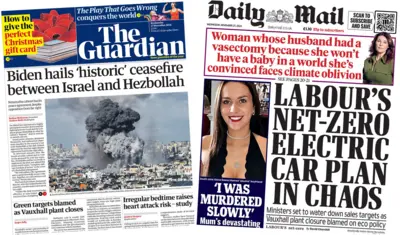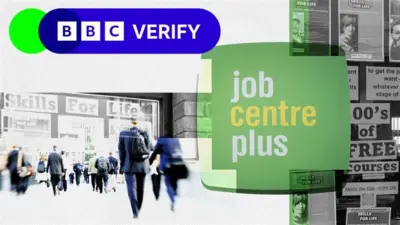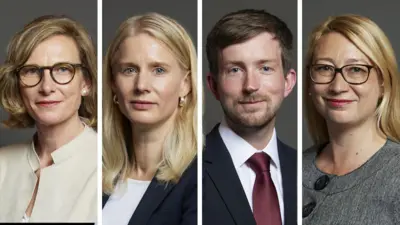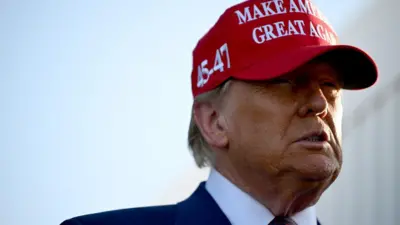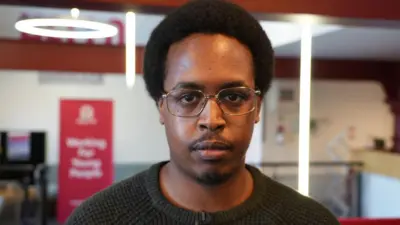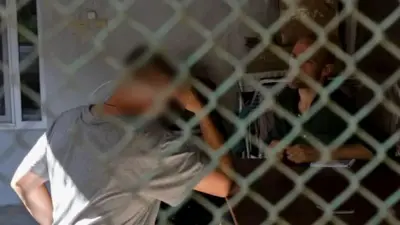We've updated our Privacy and Cookies Policy
We've made some important changes to our Privacy and Cookies Policy and we want you to know what this means for you and your data.
China to increase curbs on video gaming industry
Image source, Getty Images
- Author, Shiona McCallum & Liv McMahon
- Role, Technology reporters
China is to bring in new rules that will limit the amount of money and time that people can spend on video games.
The restrictions are aimed at limiting in-game purchases and preventing obsessive gaming behaviour.
The draft legislation is a blow to the world's largest online gaming market, which is still recovering from a previous crackdown.
The news sent shares in tech giants tumbling and wiped tens of billions of dollars off their value.
The planned curbs also reiterate a ban on "forbidden online game content that endangers national unity" and "endangers national security or harms national reputation and interests".
Beijing first moved against the gaming sector in 2021, ruling that online gamers under the age of 18 would only be allowed to play for an hour on Fridays, weekends and holidays.
But the latest raft of restrictions goes further.
Online games must not offer rewards that entice people to excessively play and spend, including those for daily logins and topping up accounts with additional funds, said the industry regulator, the National Press and Publication Administration (NPPA).
"The removal of these incentives is likely to reduce daily active users and in-app revenue, and could eventually force publishers to fundamentally overhaul their game design and monetisation strategies," said Ivan Su, an analyst at Morningstar.
Pop-ups warning users of "irrational" playing behaviour are also set to come into force.
Knock-on effect
China is the world's largest gaming market, and Tencent is the global leader in the sector in terms of revenue. The company dominates the Asian market and has invested in game studios across the world.
Following the NPPA announcement, Tencent's share price fell by 12.4%.
Tencent Games' vice president Vigo Zhang said Tencent would strictly implement any new regulatory requirements. The new draft rules have not veered from regulators' ongoing focus on ensuring companies have "reasonable business models and operating cadence", he said.
He added that minors have been spending a historically low level of money and time on Tencent's games since 2021 when protection of younger players became a focus for Beijing.
Shares in rival NetEase - which has not commented yet on the proposals - were down more than 24%.
Shares of Dutch tech investor Prosus lost more than 14%. Prosus's stock performance is closely linked to that of Tencent - which is its biggest investment in a wide-ranging portfolio of technology stocks.
The shockwaves were felt throughout Hong Kong's Hang Seng Index, which dropped more than 4% at one point, and was down 1.7% by the close of trade.
Gaming consultant Daniel Camilo told the łÉČËżěĘÖ that both Tencent and NetEase have a lot of free to play games that are "pay to win" where gamers are "actively incentivised to spend money on their games".
The restrictions could affect those types of "monetisation models" which would then have to be restructured and "some of the games might actually have to be pulled out from the stores," he said.
However, Mr Camilo thought that both Tencent or NetEase would recover in the long run. However, the same cannot be said for smaller gaming companies.
"If a small company is affected in a few millions, then it might mean that they have to close their doors," he said.
"2023 has been a year full of layoffs and a lot of struggle in particular for the gaming industry in China. So this is kind of a severe blow I would say, especially for the medium and smaller publishers."
The government's new gaming rules would also potentially speed up the process of giving games the green light in the country by requiring regulators to process approvals within 60 days.
Game publishers would need to house their servers processing and storing user data in China, rather than elsewhere.
According to Reuters, the administration is seeking public comment on the proposals by 22 January.
Top Stories
More to explore
Most read
Content is not available

